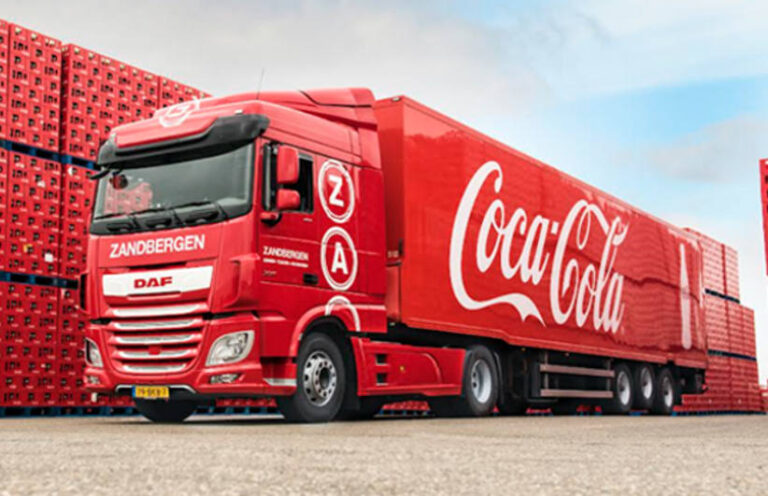Coca Cola Europacific Partners, which bottles Coke in Australia has bolstered its stocks of the secret serum used to make the soft drink just in case of continuing snarls in the supply system.
From the Suez blocking by the Ever Given container ship in 2020 to 2022 pandemic lockdowns in Shanghai, and all the dramas in between, logistics and freight players have had their lean sequential just-in-time systems blown up.
“We would carry our secret syrup that we put inside the Coke, we would carry six days of it in stock. Now we carry 8-10 days worth of stock,” said Phillip Parsons, general manager of logistics for CCEP Australia, adding, the bottler produces the famous beverage in Australia mixing local water and the secret syrup licensed by Coke in Atlanta. “There’s no more lean supply chains. They’re all really fat.”
Parsons is responsible for a fleet of 700 trucks running around Australia, one of the largest delivery networks in the country delivering Coke and other beverages to every postcode every week. The fleet ranges from little trucks to road trains, all subcontracted out — to Toll, Linfox and regional carriers and the likes.
CCEP also carry Jim Beam, beer and cider, Mount Franklin spring water, Grinders coffee, among others.
“There’s a thousand ways to get hydrated,” said Parsons, adding CCEP has some 2,000 different SKUs, comprising various flavours or packs. Parsons said that range is now being narrowed to reduce headaches.
With more stock to store demand for sheds has soared. Demand for pallets ran so fast suddenly there were none left. “Then we ran out of pallets, Australia ran out of pallets and it was called palletgate.”
Containers couldn’t be found either, and when they were their price had soared. Container makers ground to a standstill amid a shortage of raw materials and workers to make them. Shipping costs and delivery times grew manifold.
Meanwhile, Covid 19 lockdowns pushed many immigrant delivery drivers and warehouse staff on work visas home creating more problems and shortages.
“We certainly had challenges,” said Parsons. “We moved from a sequential supply chain almost to a sort of scrambled supply chain.”
Parsons was thankful his company had the means to manage to charter planes for some critical deliveries. It was also fortuitous that it had partnered with a technology group to develop a logistics and asset management platform that used spatial mapping and enabled it to see itself in place wherever it was — a vending machine in a shopping centre, a truck outside a warehouse, or a van delivering to a convenience store.
“If you don’t have a sequential supply chain, you need software and data to optimise at speed,” said Parsons. He said CCEP has spent millions developing its platform with HERE Technologies, whose maps underpin everything.
I met Parsons at a HERE Technologies event at their Australian headquarters in Melbourne, when they invited customers and media to talk about how HERE can help in the freight challenges in the wake of Covid, and in the face of climate change. I interviewed him on the side for this report.
“Using the power of the global platform and the network, we’re able to almost buy our way out of trouble,” he told me, adding he could if he had needed to charter whole planes to bring in the magic syrup.
Meanwhile, Coca Cola, like everyone else is looking at what it produces and does and simplifying, from narrowing its range of pack sizes to cutting products.
“Simplification is the only way we survive. Globally, you’re seeing less SKUs available for all companies. The complexity of this sequential supply chain was great because you can build complexity into it. When it’s disrupted, you have to get rid of the complexity. So we’re taking products off the shelves. It could be a pack size, or, you know, some smaller brands. Globally, everybody’s doing it.”
— Caroline Falls is a freelance reporter. She has been contributing to Fleet Auto News since 2015. She can be contacted at carolinefalls@gmail.com






